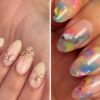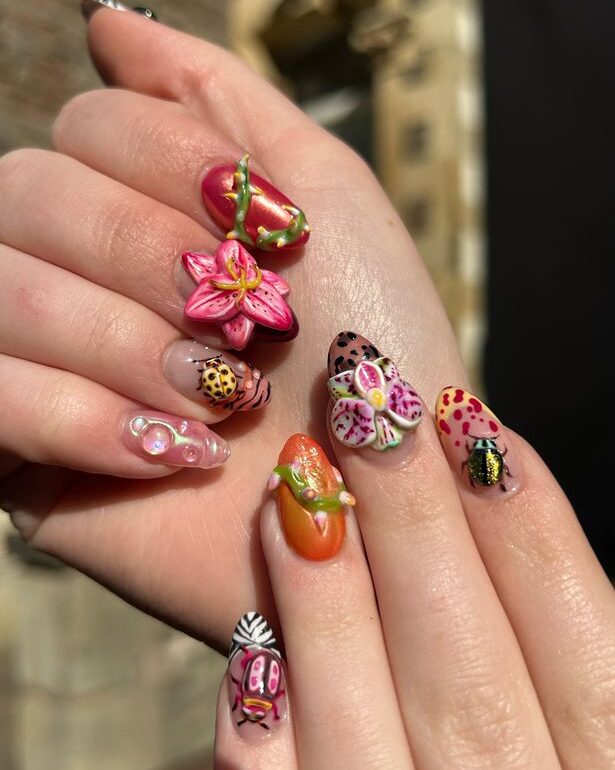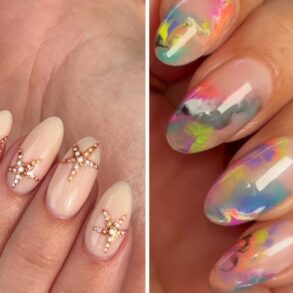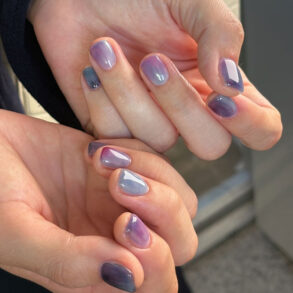Lydia Wheeler, 25, runs a nail salon from her home in Hotwells alongside studying for an MRes in Psychology at the University of Bristol. Although her business ‘Wheels Nails’ only started taking customers in September last year, she has had a passion for creating nail art since a young age.
Lydia describes herself as a creative person who has tried everything from drawing to painting, but nails have “always been in the back of her mind.” Her “wearable art” has featured in Bristol magazines Slow Approach and Utopia.

“I bought one pound nail polish for myself with my pocket money when I was nine or ten and whenever I got a new pound coin I went and bought a new colour. It was my collection,” said Lydia.
Read more:
“Wheels Nails was started as a diary in 2022 and it was nothing other than an Instagram account I could use for myself. It was a collection of my own work rather than something saying ‘come and buy my product.’”
In September, Lydia gained her qualification as a nail technician. She also works one day a week in a general salon in Bristol and feels this helps her stay up-to-date with health and safety training.
“I do uni work 9-5 Monday to Friday and try to take appointments outside of that time. Two to three times a week I am doing nails and that could be appointments between one and four hours,” said Lydia.
“I charge between £50 and £100 for a set of nails. I think that what people don’t understand about nails it is not just a quick buck.”
“I have used over fifty different products in one set of nails before. Acetone, e-file training, there’s so many hidden costs.”
Lydia cited her influences for her nail designs as being from across the world. She is conscious of the fact that extravagant and quirky nail art has long been created by Asian and black people.
“I’m not doing anything new, but I’m doing it in my own way. I take a lot of influence from Korean, Japanese and Vietnamese designs and black beauty trends.”
“A huge number of nail salons in the UK are run by Vietnamese people. There is a misconception of these people not being qualified, when they are just as qualified!”

Vietnamese nail art has a history that goes back to the 1970s, when Tippi Hedren visited a Vietnamese refugee camp. Hedren flew in her manicurist to train a small number of Vietnamese women in the trade to give them a fresh start and financial freedom.
Lydia also spoke of the negative experiences she has had in telling people about her nail business. She feels unlike other art work, nail artists and other skilled beauty professionals are not appreciated as an art form.
“Its been a really interesting experience telling people I do nail art because I feel like any other arty person, they get praise for their art. In some social circles I’ve been in, they just view my nails as a silly hobby.”
“Its a talent and a skill and a trade. The market is incredibly saturated so to have the ability to stand out is a skill in itself.”
Although Lydia spent a lot of time as a child trying out designs that she wasn’t able to afford to get done professionally, she would always recommend someone looking to get into the business to do a nail technician course.
“Over lockdown, people started doing their nails themselves and gave themselves allergies. People think that beauty doesn’t require education, but there is so much science behind it, such as the correct use of gel, which contains methacrylate.”
“My advice for anyone who wants to turn their hobby into a business is to make time for and love your hobby. As I’ve juggled education and all the boring parts of the business, there have definitely been times for me when I’ve thought I never want to do nails again!”
To check out more of Lydia’s designs, click here.
READ NEXT:
| Want the latest Bristol breaking news and top stories first? Click here to join our WhatsApp group. We also treat our community members to special offers, promotions, and adverts from us and our partners. If you don’t like our community, you can check out any time you like. If you’re curious, you can read our Privacy Notice. |
This post was originally published on this site be sure to check out more of their content.







